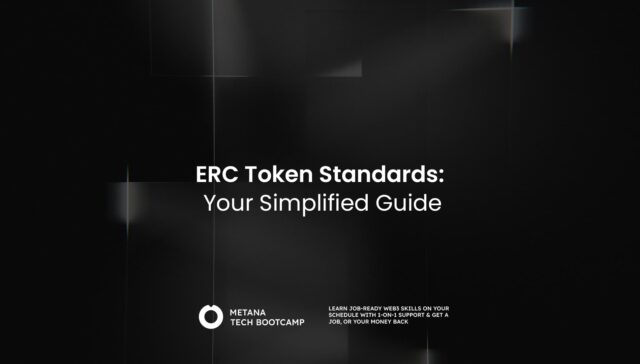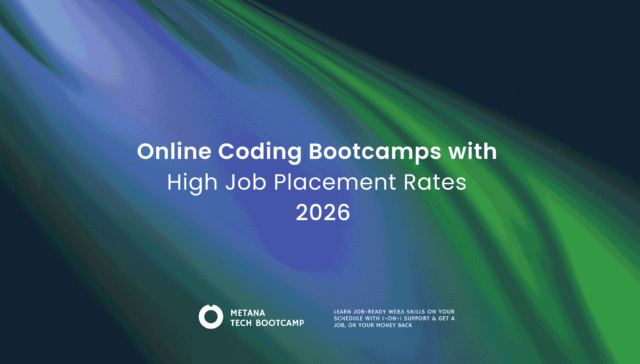TL;DR – What Skills Do You Need to Be a Software Engineer?
Becoming a great software engineer goes beyond writing code ~ it’s about mastering technical foundations, problem-solving, teamwork, and adaptability.
- Core Programming Skills: Build strong fundamentals in languages like Python, Java, and JavaScript. Learn algorithms, data structures, design patterns, and apply theory to real projects.
- Problem-Solving & Logic: Develop analytical thinking, creative solutions, debugging skills, and collaborate effectively with others.
- Version Control & Tools: Use Git, JIRA, Trello, CI/CD pipelines, and QA tools like SonarQube to manage code and streamline teamwork.
- SDLC Knowledge: Understand all stages; from planning and analysis to testing and maintenance — to contribute across the full software lifecycle.
- Soft Skills & Growth Mindset: Strong communication, teamwork, adaptability, and continuous learning are as vital as coding expertise.
- Career Growth: Keep learning, network, practice coding regularly, seek feedback, and explore emerging technologies like AI and cloud computing.
The journey to becoming a successful software engineer is exciting and challenging. In today’s tech-driven world, this role is more than just coding; it’s about a blend of technical prowess and soft skills. This article, “Software Engineer Skills: What It Takes to Excel in the Industry”, provides a straightforward guide to the essential skills needed in the software engineering field. From programming fundamentals to problem-solving and continuous learning, we’ll cover the key areas that aspiring and current software engineers should focus on to thrive in this dynamic profession.
Fundamental Programming Knowledge
If you’re questioning what do software engineers need to know, the foundation of your skill set lies in your programming knowledge. This isn’t just about knowing how to write code; it’s about understanding the logic and structure that underpin effective software solutions.
- Mastering Key Programming Languages: The first step is to gain proficiency in languages that are cornerstone to software development. Languages like Python, Java, and JavaScript are ubiquitous in the industry. Python, known for its simplicity and readability, is a great starting point for beginners and is extensively used in data science and web development. Java, with its robustness and portability, is a staple for enterprise-level applications. Meanwhile, JavaScript is essential for front-end development, bringing websites to life with interactive elements.
- Algorithms and Data Structures: Beyond languages, a software engineer must be adept at algorithms and data structures. This knowledge allows you to solve complex problems efficiently. Understanding different types of data structures (like arrays, lists, trees, and graphs) and how they are best utilized is crucial. Algorithms, on the other hand, are about the step-by-step logical processes used to solve these problems. Mastery in these areas is often what differentiates a good software engineer from a great one.
- Applying Theoretical Knowledge to Practical Problems: The true test of programming knowledge is its application. It’s not just about writing code that works; it’s about writing code that is efficient, readable, and scalable. This involves best practices like code refactoring, understanding design patterns, and writing clean, maintainable code.
- Learning New Technologies and Languages: The tech world is constantly evolving. Keeping up with new programming languages, frameworks, and technologies is vital. For instance, the rise of cloud computing and machine learning has made knowledge in these areas increasingly valuable.
- Participating in Coding Challenges and Projects: To refine your programming skills, engage in coding challenges and contribute to real-world projects. Platforms like GitHub offer a wealth of open-source projects where you can collaborate and learn from others. Likewise, coding challenges on platforms like LeetCode or HackerRank can sharpen your problem-solving skills.
Programming is a craft where learning never stops. As a software engineer, continually updating your programming knowledge is not just a requirement; it’s a passion that drives innovation and excellence.
Problem-Solving and Logical Thinking
At the heart of software engineering lies the ability to solve complex problems and think logically. This skill is as crucial as knowing how to code because it drives the development of efficient and effective solutions.
- Analytical Mindset: A software engineer must approach problems analytically, breaking them down into manageable parts. This approach not only makes complex problems more solvable but also helps in identifying the most efficient solutions.
- Creative Problem-Solving: Creativity in software engineering is about finding innovative solutions to challenging problems. It involves thinking outside the box and sometimes applying unconventional methods to achieve the desired outcome.
- Understanding and Applying Design Patterns: Design patterns are standard solutions to common problems in software design. Familiarity with these patterns enhances problem-solving efficiency and helps in creating scalable and maintainable code.
- Debugging Skills: A significant part of problem-solving is identifying and fixing bugs. Effective debugging requires a methodical approach to trace and rectify errors in the code, which is a vital skill for any software engineer.
- Collaborative Problem-Solving: In many cases, problem-solving is a team effort. Being able to work collaboratively, leveraging the strengths and perspectives of teammates, can lead to more innovative and robust solutions.
Problem-solving and logical thinking go hand-in-hand with technical skills. They enable software engineers to not just write code, but to craft solutions that are elegant, efficient, and forward-thinking.

Version Control and Software Management Tools
Version control and software management tools are indispensable. These tools not only streamline the development process but also enhance team collaboration and project tracking.
- Essentials of Version Control: Tools like Git are fundamental in modern software development. Version control systems allow developers to track changes, revert to previous versions, and manage code in a collaborative environment. Understanding Git, for instance, is crucial for efficient team collaboration and managing complex projects.
- Software Management Tools: Beyond version control, software management tools like JIRA, Trello, and Asana play a key role in project planning and execution. They help in organizing tasks, tracking progress, and ensuring that all team members are aligned with the project goals.
- Continuous Integration and Deployment (CI/CD): Familiarity with CI/CD practices and tools like Jenkins, Travis CI, or GitHub Actions is vital. These tools automate the process of integrating code changes and deploying them, ensuring a smoother and more reliable delivery process.
- Code Review and Quality Assurance: Tools for code review and quality assurance are integral to maintaining high standards of code. Platforms like GitHub, GitLab, and Bitbucket offer code review features, while tools like SonarQube help in analyzing code quality.
- Adaptability to New Tools and Technologies: The landscape of software management tools is always evolving. A competent software engineer must be adaptable, continuously learning, and incorporating new tools into their workflow.
Understanding and utilizing these tools is critical for any software engineer. They not only improve efficiency but also ensure that teams can work together effectively to build high-quality software products.
Understanding of Software Development Life Cycle (SDLC)
A comprehensive understanding of the Software Development Life Cycle (SDLC) is among the crucial things to learn to become a software engineer. This knowledge is not just about coding; it’s about grasping the entire process of software creation and maintenance.
- Stages of SDLC: The SDLC consists of several stages, including planning, analysis, design, implementation, testing, deployment, and maintenance. Understanding each stage helps software engineers to contribute effectively at every phase of project development.
- Planning and Analysis: In the initial stages of planning and analysis, software engineers need to know how to gather requirements, define scope, and plan for resources. This foundational step is critical for the success of the entire project.
- Design and Implementation: During the design phase, engineers transform requirements into a blueprint for the software. The implementation stage is where the actual coding happens. A deep understanding of these stages ensures that the software is built as per specifications and standards.
- Testing and Deployment: Testing is essential for quality assurance and identifying any issues before the software goes live. Deployment involves placing the software in a production environment. Software engineers should be skilled in both to ensure a smooth transition from development to use.
- Maintenance and Iteration: Post-deployment, the focus shifts to maintenance and iterative improvements based on user feedback and evolving needs. This stage is critical for the software’s longevity and relevance.
Understanding the SDLC equips software engineers with a holistic view of software development, enabling them to anticipate challenges and contribute effectively at every stage.
Soft Skills and Continuous Learning
In the world of software engineering, technical prowess is only part of the equation. Soft skills and a commitment to continuous learning are equally vital. These aspects determine not just how you work, but also how you grow and adapt in this ever-changing field.
- Communication Skills: Effective communication is essential, whether it’s discussing requirements with a client, collaborating with team members, or documenting your code. Clear and concise communication can significantly improve the quality and efficiency of software projects.
- Teamwork and Collaboration: Software development is often a team endeavor. The ability to work well with others, be it in pair programming or cross-functional teams, is crucial. This involves understanding different perspectives and being open to feedback.
- Problem-Solving in a Broader Context: Software engineers need to understand the broader impact of their solutions. This means looking beyond the code and considering user experience, business needs, and potential future challenges.
- Adaptability and Learning: The tech industry is constantly evolving, and so are the skills required to be a successful software engineer. A mindset geared towards continuous learning and adaptability is key. This includes staying updated with the latest technologies, trends, and best practices.
- Emotional Intelligence: Emotional intelligence plays a significant role in managing stress, navigating workplace dynamics, and leading effectively. It’s about self-awareness, empathy, and managing emotions in a professional context.
Incorporating soft skills and a habit of continuous learning into your professional journey as a software engineer can dramatically boost your career. These skills not only make you a better team player but also prepare you for leadership roles and innovative challenges.
How To Grow Your Software Engineering Skill Set
Evolving as a software engineer involves a commitment to continuous learning and practical application. Here are key strategies to enhance your skills:
- Continuous Learning: Stay updated with the latest trends and technologies through online courses and industry literature.
- Regular Coding Practice: Improve your coding skills through regular practice, coding challenges, and contributing to open-source projects.
- Explore New Technologies: Broaden your expertise by learning new programming languages and exploring emerging technologies.
- Understand the Full Development Cycle: Gain insights into all aspects of software development, from project management to deployment.
- Develop Soft Skills: Enhance crucial soft skills like communication, teamwork, and problem-solving.
- Network Professionally: Connect with peers and mentors in the industry for insights and opportunities.
- Seek Feedback: Regularly seek feedback and mentorship to identify areas for improvement.
Conclusion
Becoming a software engineer is a journey of continuous learning and skill development. This article highlighted the key things to learn to become a software engineer and what software engineers need to know to thrive in the industry. Mastery of programming, understanding of the Software Development Life Cycle, and effective problem-solving are just the start. Equally important are soft skills like communication and teamwork, along with a commitment to lifelong learning. In the fast-paced tech world, these skills are your tools for success, helping you adapt and grow in your software engineering career.
Launch Your Tech Career with Metana’s Full Stack Bootcamp
Dive into the tech world with Metana’s Full Stack Software Engineer Bootcamp. Transform your career with our immersive program that covers everything from front-end to back-end development. Get hands-on with real-world projects, learn from industry experts, and gain the skills for a successful software engineering career. Our personalized mentorship ensures you’re not just learning – you’re evolving. Ready to make your mark in tech? Check out our Bootcamp and start your journey today. 🌟

FAQs
What are the must-know programming languages for a software engineer?
- Essential programming languages often include Python, Java, and JavaScript, due to their widespread use and applicability in various software development areas.
How important is understanding the Software Development Life Cycle (SDLC) for software engineers?
- Understanding the SDLC is crucial as it provides a structured approach to planning, creating, testing, and deploying software, ensuring efficiency and quality.
Can soft skills really impact a software engineer’s career?
- Absolutely. Soft skills like effective communication, teamwork, and emotional intelligence significantly enhance collaboration, problem-solving, and adaptability in a professional setting.
What role does problem-solving play in software engineering?
- Problem-solving is central, involving efficient solution finding, debugging, and anticipating future challenges, making it a key skill for any software engineer.
Why is continuous learning important in software engineering?
- The rapidly evolving tech field makes continuous learning essential for software engineers to keep up with new technologies, methodologies, and industry best practices.
What’s the difference between front-end and back-end development?
- Front-end development focuses on user interfaces and experiences using languages like HTML, CSS, and JavaScript. Back-end development deals with server-side, databases, and application logic, using languages like Java, Python, and Ruby.
How does cloud computing impact software engineering?
- Cloud computing offers scalable, on-demand resources, enabling more efficient development processes, easier collaboration, and innovative approaches to application deployment and management.
What is Agile methodology in software development?
- Agile is an iterative approach that emphasizes flexibility, customer satisfaction, continuous improvement, and collaborative work, contrasting with traditional linear models like Waterfall.
Are coding bootcamps a viable path to becoming a software engineer?
- Yes, coding bootcamps offer intensive, practical training in programming skills and can be a good option for those seeking a quick transition into the field.
What is the role of Artificial Intelligence in software engineering?
- AI is used for automating tasks, analyzing code for errors, optimizing development processes, and creating intelligent software solutions.







